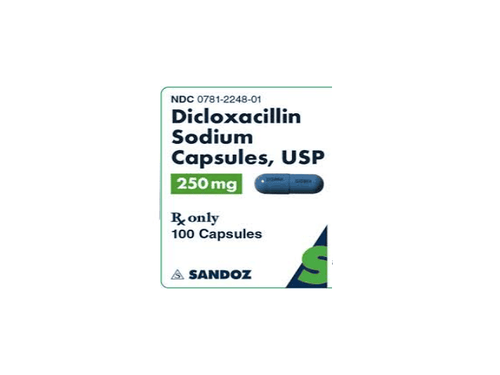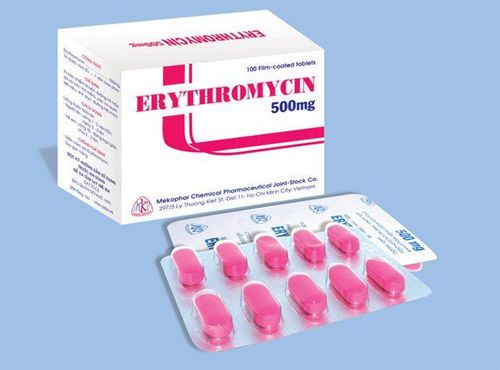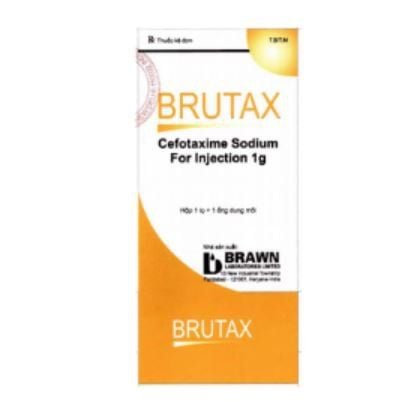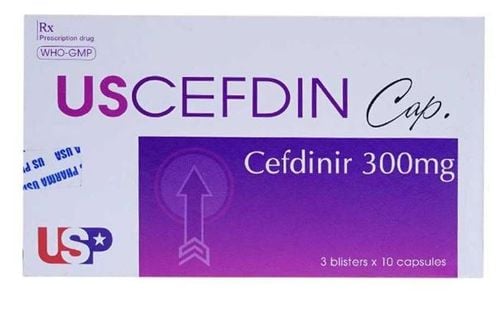This is an automatically translated article.
Newgenneolacin is used against fungi and bacteria in some cases. Before taking Newgenneolacin, you need to have a doctor's prescription to ensure safety for your health. Here is some information to help you better understand Newgenneolacin brand-name drug.
1. Uses of the drug Newgenneolacin
Newgenneolacin has a risk of causing pseudomembranous colitis, so care should be taken when using it. This is a drug indicated for prophylaxis when drugs in the same subgroup are not effective in treatment. Newgenneolacin is indicated in case of infection with sensitive bacteria such as Bacteroides fragilis, Staphylococcus aureus. Newgenneolacin can be used to treat patients who are allergic to penicillin.
The drug is indicated for use in the following cases:
Prophylaxis of pericarditis; Prophylaxis of infection after organ transplant surgery in patients allergic to penicillin; Pneumonia; Lung abscess ; Severe anaerobic respiratory tract infections; Peritonitis or intra-abdominal abscess; Infections of open wounds or surgical wounds; Sepsis; Pelvic infection; Inflammation of the lining of the uterus; Tubal abscess is not caused by gonococcal bacteria; Cellulitis of the pelvis; Vaginal infections after surgery; Eye injury; Antibiotic-resistant bacteria cause acne. Infectious conditions when using the drug need to be very careful. Newgenneolacin is not the preferred choice, only if it is not possible to use other anti-fungal and antibacterial drugs, then the drug should be used.
2. Dosage and how to use Newgenneolacin
Newgenneolacin is used orally at a prescribed dose according to the patient's infection status. In particular, infections occurring in patients with blood type A should be treated for at least 10 days. Severe inflammatory conditions or osteomyelitis require a minimum of 6 weeks of treatment.
Dosage of Newgenneolacin was adjusted for each subject. For young children, the dose is prescribed according to weight. Children should use each time 6 hours apart with a dose of 3-6mg/kg. The exact dose will be prescribed by the doctor according to the condition of the infection in the child. If the child is less than 1 year old and less than 10 kg should use a dose of 37.5 mg and consecutive doses 8 hours apart. Adults use a dose of 150-300mg. The interval between 2 doses should be 6 hours and can be increased to a maximum of 450 mg.
3. Notes before taking Newgenneolacin
Newgenneolacin is contraindicated for use in patients with a known history of allergy to any of the medicinal ingredients of the drug. Because this is a non-preferred choice, care should be taken when using it to avoid affecting the effectiveness of the drug.
Newgenneolacin should not be used in infants under 1 month of age. In addition to infants, the elderly, patients with gastrointestinal diseases should consider before using the drug. These subjects are often at high risk of being adversely affected by the disease, reducing the effectiveness of the drug or causing unpredictable complications. During the time the patient is using the drug Newgenneolacin, they should have regular health check-ups.
Newgenneolacin can cause inflammatory bowel disease. To ensure that you minimize the risk of infection, be sure to screen for intestinal infections before taking Newgenneolacin.
Before use, carefully check the packaging and expiry date. After use, you should store the medicine in a dry environment, away from direct sunlight.
4. Newgenneolacin side effects
Diarrhea ; Vomit; Nausea; Stomachache; Itchy rash ; Rash; Rash; Pseudomembranous colitis; Decrease in neutrophil count; Eosinophilia ; Agranulocytosis; Decrease in platelet count. These side effects are common and have been shown to be dangerous in laboratory studies. In addition, you may experience a few other side effects with complications, no signs.... very dangerous to health.
To minimize the risk of dangerous side effects, you should tell your doctor about any unusual feelings. Also, go for regular health check-ups to accurately assess your risk of asymptomatic side effects.
5. Interactions with Newgenneolacin
Newgenneolacin can affect the nervous system, making it difficult to control muscle activity when used with Clindamycin. The cause may not be from 2 drugs but a 3rd agent that causes neuromuscular blockade.
Non-steroidal anti-inflammatory drugs should not be used with Newgenneolacin. According to the findings, these two drugs used together can affect the drug's effectiveness. Newgenneolacin drug interactions have not been fully detected. You should discuss more with your doctor about the medications you are taking and your current medical condition for advice and support.
Newgenneolacin is an alternative choice for patients allergic to Penicillin when it has antifungal and anti-inflammatory properties. To ensure safety for your health and maximize the effectiveness of your treatment, you need to take Newgenneolacin exactly as directed by your doctor.
Please dial HOTLINE for more information or register for an appointment HERE. Download MyVinmec app to make appointments faster and to manage your bookings easily.













